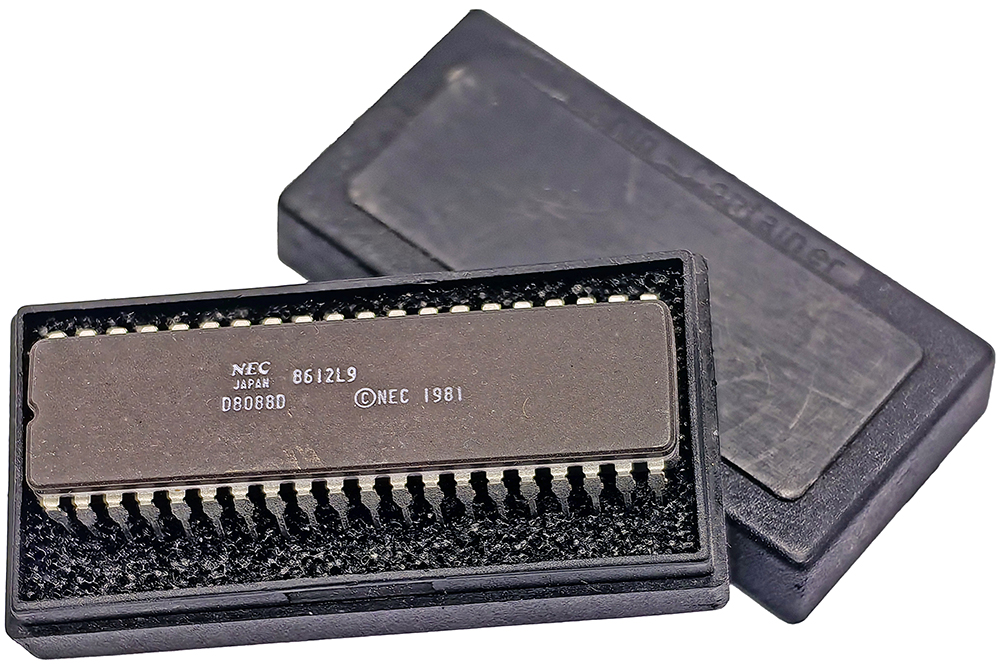

The NEC D8088D is a microprocessor developed by the Japanese company NEC in the early 1980s as part of their strategy to enter the global personal computer market. Based on a licensed design of the Intel 8088 processor, the D8088D was fully compatible with Intel's standard but manufactured using NEC’s own technology, with the goal of offering the same functionality at a more competitive price and with greater availability. Technically, the D8088D was a 16-bit processor internally, but featured an 8-bit external data bus, making it more cost-effective to integrate into systems built around 8-bit components. It operated at a clock speed of 5 MHz, utilized NMOS technology, and came in the classic 40-pin DIP package, often ceramic. What made it stand out was its support for the Intel 8087 math coprocessor, allowing easier implementation of advanced arithmetic operations in computing systems—something especially valuable for business and industrial applications at the time. As a direct “clone” of the Intel 8088 chip, the D8088D became an important component in the production of computers compatible with the IBM PC standard, especially across Asia and Europe, where manufacturers sought stable but more affordable alternatives. Its availability contributed to the expansion of the x86 architecture and enabled more companies to participate in the emerging PC revolution.
Creator: NEC Corporation / Intel, 1979
Source: Gift of Žarko Mijajlović
Text prepared by Vanja Korać
Photo by Dragan Aćimović
